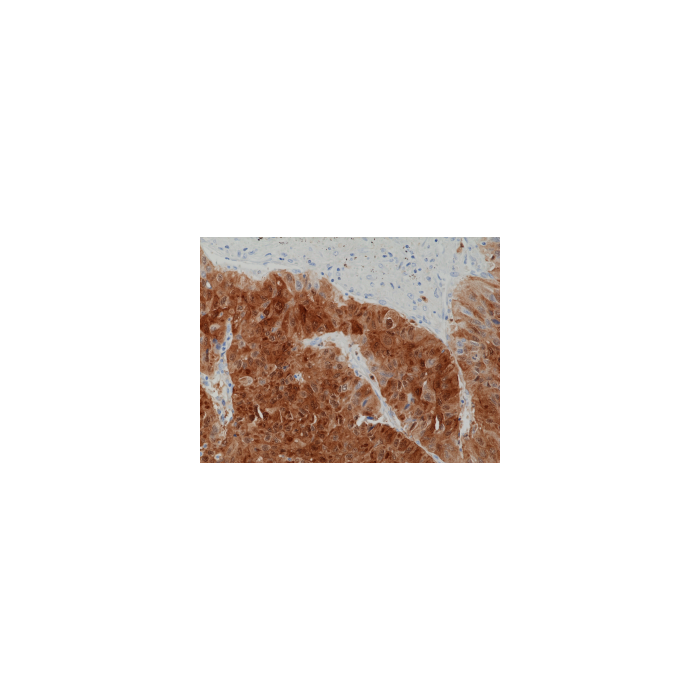Cookie Policy: This site uses cookies to improve your experience. You can find out more about our use of cookies in our Privacy Policy. By continuing to browse this site you agree to our use of cookies.
RevMab
anti-Arginase-1 (human), Rabbit Monoclonal (RM377)

| Product Details | |
|---|---|
| Synonyms | ARG1 |
| Product Type | Recombinant Antibody |
| Properties | |
| Clone | RM377 |
| Isotype | Rabbit IgG |
| Source/Host | Rabbit |
| Immunogen/Antigen | A peptide corresponding to the C-terminus of human Arginase-1 (ARG1). |
| Application |
Immunohistochemistry (IHC): 1:1000-1:2000 dilution |
| Crossreactivity | Human |
| Specificity |
This antibody reacts to human Arginase-1 (ARG1). |
| Purity | Protein A purified. |
| Purity Detail | Protein A affinity purified from an animal origin-free culture supernatant. |
| Concentration | N/A |
| Formulation | Liquid. 50% Glycerol/PBS with 1% BSA and 0.09% sodium azide. |
| Isotype Negative Control | |
| Other Product Data |
Click here for Original Manufacturer Product Datasheet |
| Accession Number | P05089 |
| Declaration | Manufactured by RevMab Biosciences. |
| Shipping and Handling | |
| Shipping | BLUE ICE |
| Long Term Storage | -20°C |
| Handling Advice | Avoid freeze/thaw cycles. |
| Use/Stability | Stable for at least 1 year after receipt when stored at -20°C. |
| Documents | |
| Product Specification Sheet | |
| Datasheet |
 Download PDF Download PDF |
Arginase I, encoded by the ARG1 gene, is a cytosolic metalloenzyme expressed predominantly in hepatocytes which plays a key role in the urea cycle by catalyzing the hydrolysis of arginine to ornithine and urea. Inherited deficiency of this enzyme results in argininemia, an autosomal recessive disorder characterized by hyperammonemia, a buildup of arginine and ammonia in the blood. Arginase is involved in the nitric oxide (NO) pathway and immune cell arginine metabolism. It is fundamentally involved in cancer, inflammation, infections, fibrotic diseases, neurobiology, pregnancy and immune regulation in general. Anti-Arginase I is highly specific for hepatocytes and is therefore a sensitive and specific marker of benign and malignant hepatic tumors.





